第85章 THE OLD HOME(1)
Before her marriage Mrs Edmund Yule was one of seven motherless sisters who constituted the family of a dentist slenderly provided in the matter of income. The pinching and paring which was a chief employment of her energies in those early days had disagreeable effects upon a character disposed rather to generosity than the reverse; during her husband's lifetime she had enjoyed rather too eagerly all the good things which he put at her command, sometimes forgetting that a wife has duties as well as claims, and in her widowhood she indulged a pretentiousness and querulousness which were the natural, but not amiable, results of suddenly restricted circumstances.
Like the majority of London people, she occupied a house of which the rent absurdly exceeded the due proportion of her income, a pleasant foible turned to such good account by London landlords.
Whereas she might have lived with a good deal of modest comfort, her existence was a perpetual effort to conceal the squalid background of what was meant for the eyes of her friends and neighbours. She kept only two servants, who were so ill paid and so relentlessly overworked that it was seldom they remained with her for more than three months. In dealings with other people whom she perforce employed, she was often guilty of incredible meanness; as, for instance, when she obliged her half-starved dressmaker to purchase material for her, and then postponed payment alike for that and for the work itself to the last possible moment. This was not heartlessness in the strict sense of the word; the woman not only knew that her behaviour was shameful, she was in truth ashamed of it and sorry for her victims. But life was a battle. She must either crush or be crushed. With sufficient means, she would have defrauded no one, and would have behaved generously to many; with barely enough for her needs, she set her face and defied her feelings, inasmuch as she believed there was no choice.
She would shed tears over a pitiful story of want, and without shadow of hypocrisy. It was hard, it was cruel; such things oughtn't to be allowed in a world where there were so many rich people. The next day she would argue with her charwoman about halfpence, and end by paying the poor creature what she knew was inadequate and unjust. For the simplest reason: she hadn't more to give, without submitting to privations which she considered intolerable.
But whilst she could be a positive hyena to strangers, to those who were akin to her, and those of whom she was fond, her affectionate kindness was remarkable. One observes this peculiarity often enough; it reminds one how savage the social conflict is, in which those little groups of people stand serried against their common enemies; relentless to all others, among themselves only the more tender and zealous because of the ever-impending danger. No mother was ever more devoted. Her son, a gentleman of quite noteworthy selfishness, had board and lodging beneath her roof on nominal terms, and under no stress of pecuniary trouble had Mrs Yule called upon him to make the slightest sacrifice on her behalf. Her daughter she loved with profound tenderness, and had no will that was opposed to Amy's.
And it was characteristic of her that her children were never allowed to understand of what baseness she often became guilty in the determination to support appearances. John Yule naturally suspected what went on behind the scenes; on one occasion--since Amy's marriage--he had involuntarily overheard a dialogue between his mother and a servant on the point of departing which made even him feel ashamed. But from Amy every paltriness and meanness had always been concealed with the utmost care; Mrs Yule did not scruple to lie heroically when in danger of being detected by her daughter.
Yet this energetic lady had no social ambitions that pointed above her own stratum. She did not aim at intimacy with her superiors; merely at superiority among her intimates. Her circle was not large, but in that circle she must be regarded with the respect due to a woman of refined tastes and personal distinction. Her little dinners might be of rare occurrence, but to be invited must be felt a privilege. 'Mrs Edmund Yule' must sound well on people's lips; never be the occasion of those peculiar smiles which she herself was rather fond of indulging at the mention of other people's names.
The question of Amy's marriage had been her constant thought from the time when the little girl shot into a woman grown. For Amy no common match, no acceptance of a husband merely for money or position. Few men who walked the earth were mates for Amy. But years went on, and the man of undeniable distinction did not yet present himself. Suitors offered, but Amy smiled coldly at their addresses, in private not seldom scornfully, and her mother, though growing anxious, approved. Then of a sudden appeared Edwin Reardon.
A literary man? Well, it was one mode of distinction. Happily, a novelist; novelists now and then had considerable social success.
Mr Reardon, it was true, did not impress one as a man likely to push forward where the battle called for rude vigour, but Amy soon assured herself that he would have a reputation far other than that of the average successful storyteller. The best people would regard him; he would be welcomed in the penetralia of culture; superior persons would say: 'Oh, I don't read novels as a rule, but of course Mr Reardon's--' If that really were to be the case, all was well; for Mrs Yule could appreciate social and intellectual differences.
Alas! alas! What was the end of those shining anticipations?